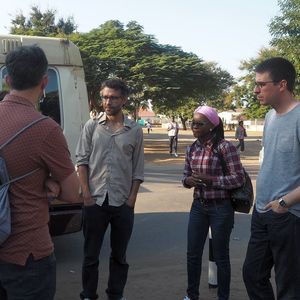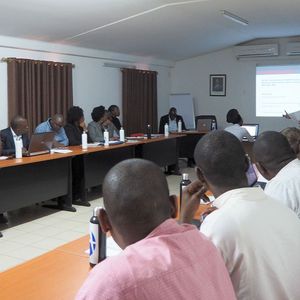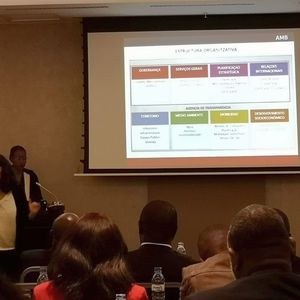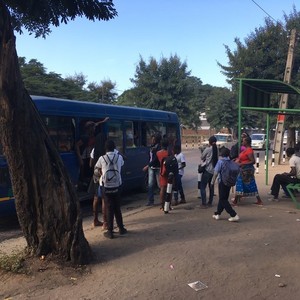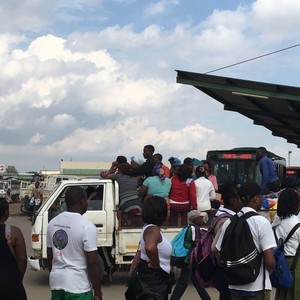Public transport in the Great Maputo
| Subject: International Cooperation
The AMB provides technical support based on its knowledge and experience
A team of the AMB's mobility and cooperation technical staff participated in the Greater Maputo Sustainable Mobility Week in Mozambique, from 9th to 16th June.
The participation of the AMB has taken place in the context of the project "Sustainable and inclusive mobility and its integration into public space in the metropolitan area of Greater Maputo, Mozambique" which is being implemented by the Maputo Municipality, Arquitectura Sense Fronteres and the AMB.
This event has been organized by the Maputo municipality, Arquitectura Sense Fronteres, UN-habitat and the AMB with the collaboration of several local transport companies and organizations.
Week of Mobility activities
This week has served to highlight the challenges and proposals for mobility in the Maputo Metropolitan Area. During the sessions, various activities were organised, such as the performance "Who occupies what?", an urban walk, a training day on metropolitan mobility, a gender and mobility workshop and a congress, among others.
The AMB technical delegation performed workshops during the training sessions, which dealt with metropolitan governance, GIS database and transport management systems. They also participated in the gender workshop, where a campaign to prevent violence in public transport was designed.
The AMB staff also participated in the congress on "Sustainable Mobility in the Maputo Metropolitan Area", where the participants reflected on the different models of metropolitan governance. The AMB model was presented and its experience in mobility was shared, especially focusing on the management of the transport system.
Greater Maputo Metropolitan Transport Agency
In November 2017, a law was passed to establish and implement the Greater Maputo Metropolitan Transport Agency, consisting of three municipalities and one district. It is a metropolitan area with around three million inhabitants, which has the great challenge of mobility within its territory.
The rapid population growth, the widespread unplanned occupation of all the peripheral areas of the capital, the high cost of public transport and the economic crisis that the country has suffered have made it difficult to implement the Greater Maputo Transport Master Plan. In the last period, the transport has suffered a severe deterioration, and it has raised social alarm, and the difference between high demand and low supply unsustainable. This situation leads to increased waiting times, overcrowding of vehicles in service and the emergence of the "Mylove" trucks, in which users travel without safety measures. Aggressions in public transport and during waiting times have increased as a further consequence of this situation.
In addition, Greater Maputo is home to 80 per cent of the country's vehicles (people with the capacity to buy and pay for fuel represent 12% of the population), and the lack of planning of the parking lot makes vehicles occupy a large portion of the public space.
The conclusion of all this is that the Metropolitan Transport Agency becomes a critical challenge—political and technical— for Greater Maputo and represents an opportunity to offer metropolitan responses to metropolitan problems. This is why the AMB has made a commitment to support it on the basis of its knowledge and experience.
Image gallery
Related documents
Where














































